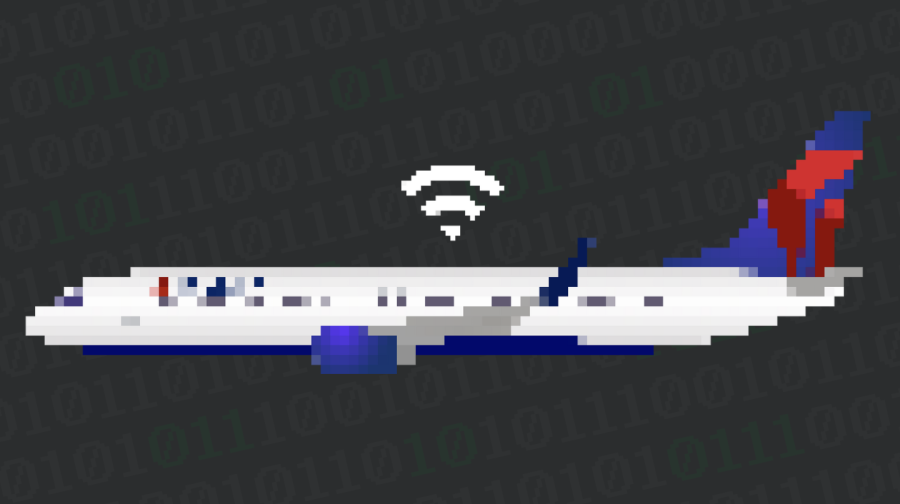In a world where technology dependence continues to grow, people are often blind to the implications of using its applications.
Upon signing up for an application or membership program, people are prompted to agree to the terms and conditions of use. Among the ages 18-34, 97% of users do not read the terms and conditions before, seemingly innocuously, selecting “I agree.”
This agreement is often an uneducated submission to a corporation’s will, which often displays negligent concern for their users’ privacy. Corporations will collect, track and sell consumer information for marketing and engagement purposes.
Current privacy policies do little to protect consumers due to the immense size of the global advertising market—valued at $590.3 billion. By 2027, it’s estimated to grow another $202.4 billion.
PV marketing teacher Janene Murphy attested to the compromisation of user data for advertisement purposes. “Companies want to get information on you to target ads specifically towards you. They make money off of personal data collection,” she said. “I think many people would not mind if they received a recommendation on the type of shoe they might want to wear. However, at what point does it become invasive? At what point does data become too private for companies to use?”
One survey concluded that only 26% of marketers find that consumer privacy is not a concern when executing their marketing tasks. Because personal information is the keystone of successful marketing campaigns, companies offer incentives to lure consumers as a play to acquire their data.
For years, companies have monetized off of user data, but recently, a negative trajectory shows that data collection has become more discreet and incorporated into the day-to-day uses of technology.
This year, Delta Airlines announced free wifi on most of their flights by the end of 2023, becoming the first major U.S.-based airline to offer this service to passengers. At first glance, it appears Delta is differentiating itself from competitors by offering this in-flight perk. However, nothing is truly free. If a company is not selling a product, consumers are the product.
To receive free wifi on Delta aircraft, flyers must sign up for Delta’s SkyMiles program. Blinded by this benefit, consumers may not recognize the alarming provisions contained within the fine print of Delta’s privacy policy.
Section 4.1c of their privacy policy outlines the intentions and rights of the airline regarding shared information through the SkyMiles program. This information includes the passenger’s name, contact information, date of birth, gender, digital image (with consent), employer, company details and the traveler’s role within that company.
Delta will use this information for statistical analysis, segmentation and program development research. However, their data collection extends much further than United States borders, as Delta claims the right to provide this information to SkyMiles and promotional partners.
Delta Airlines is partnered with 23 airlines worldwide, including AirFrance, Kenya Airways, Vietnam Airways, China Airlines, Virgin Atlantic and China Eastern. Delta retains the right to distribute passengers’ sensitive data to this network of partners—and in some cases, even foreign governments can obtain this data through state-owned airlines.
Single data inputs can reach the hands of individuals, companies and governments worldwide. Considering this immense privacy issue, it is concerning that most consumers do not realize the implications of these services. But even if they did, would consumer behavior change?
Not likely.
Even if consumers understand the implications of data collection, 73% of Americans will not change their behavior. Even more alarming, about one in five Americans don’t mind sharing sensitive information such as their social security number.
All else equal, a Spartan Shield survey of PV high school students found that one in five students would also not mind sharing their social security number in exchange for using social media platforms such as Instagram and Snapchat.
At what point does the cost of consumer privacy outweigh the benefits offered by corporations?
Senior Riley Asselin, a student immersed in social networks and technology, shared, “The usage of social networks are woven into out civilization. The entire makeup of our world would flip upside down if social media or technology were regulated or limited. Because we are so dependent, we have to comply with companies’ data collection.”
Today’s society makes it impossible to carry out our daily lives without interacting with technology. Communication, financials, information, and directions are heavily integrated with daily technology use. This unavoidable use leaves users’ data completely susceptible to companies with ambiguous ulterior motives. Society wholly must continue to tighten data-sharing restrictions to ensure consumer protection.










